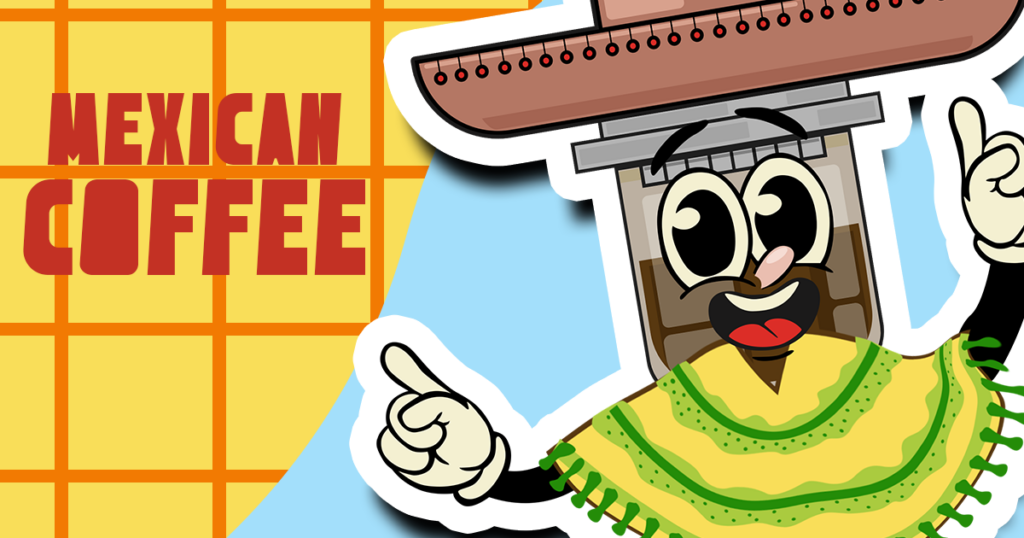Mexico may be known for its rich culinary heritage, but its coffee culture is just as vibrant and influential. As one of the world’s top coffee producers, Mexico has made its mark on the global coffee scene. From the mountains of Chiapas to the trendy cafes of Mexico City, Mexican coffee culture tells a story of tradition, innovation, and community.
The Roots of Mexican Coffee
Coffee was first introduced to Mexico in the late 18th century, and since then, it has become an integral part of the country’s agricultural landscape. Mexico’s southern regions, particularly Chiapas, Veracruz, and Oaxaca, are celebrated for their high-quality coffee beans. These areas are ideal for coffee cultivation, with their mountainous terrain, tropical climates, and nutrient-rich soils providing perfect growing conditions.
The majority of Mexican coffee is shade-grown by small-scale farmers, often using organic practices passed down through generations. This traditional, sustainable approach to farming is a cornerstone of Mexican coffee culture, emphasizing the deep connection between the land and its people.
The Social and Economic Impact of Coffee in Mexico
Coffee is a lifeline for many Mexican communities. In regions like Chiapas, it provides employment for millions of people, from farmers to local cooperatives. Fair trade coffee has played a critical role in improving the livelihoods of these small-scale farmers by ensuring they receive better wages and have access to global markets.
Additionally, coffee production supports Mexico’s economic development, with the country being one of the largest exporters of organic coffee in the world. This commitment to sustainable practices has positioned Mexican coffee as a premium product, sought after by eco-conscious consumers worldwide.
The Mexican Café Scene
In Mexico, coffee isn’t just something to drink on the go—it’s an experience to be savored. From traditional family-owned cafes to chic, modern coffeehouses, the café scene is booming. Cities like Mexico City, Guadalajara, and Monterrey have embraced the global “third-wave” coffee movement, where the focus is on artisanal coffee preparation and high-quality beans.
In traditional Mexican coffee culture, one iconic beverage stands out: café de olla. This spiced coffee, sweetened with piloncillo (unrefined cane sugar) and infused with cinnamon, has deep roots in Mexican history, dating back to the time of the Mexican Revolution when it was a staple drink for soldiers. Today, it remains a beloved part of everyday life, evoking feelings of warmth and comfort.
Mexican Coffee’s Role in Global Coffee Culture
Mexico’s influence on global coffee culture is growing, particularly as international demand for Mexican beans continues to rise. Mexico’s focus on organic, sustainable farming practices aligns with the increasing consumer demand for ethically sourced and environmentally friendly products.
Brands around the world now proudly showcase Mexican coffee beans, highlighting the country’s commitment to quality. With distinctive flavor profiles—often featuring bright acidity, floral notes, and hints of chocolate—Mexican coffee is celebrated for its versatility and complexity, making it a favorite among coffee aficionados.
Challenges and Opportunities in Mexican Coffee Production
Like many coffee-producing countries, Mexico faces challenges related to climate change and economic pressures. Rising temperatures and unpredictable weather patterns threaten coffee-growing regions, and farmers are constantly adapting to these changes. Fortunately, Mexican coffee cooperatives and environmental organizations are actively working on solutions, including climate-resilient coffee varieties and improved farming techniques.
At the same time, the global interest in sustainable and fair trade coffee presents an opportunity for Mexico to continue expanding its influence in the coffee market. By leveraging its commitment to organic and shade-grown coffee, Mexico is well-positioned to thrive in the growing demand for high-quality, environmentally responsible products.
Mexico’s coffee culture is a blend of tradition and innovation, deeply rooted in the country’s history and landscape. From the rich flavors of café de olla to the bustling modern cafes in urban centers, Mexican coffee plays a pivotal role in both the local and global coffee scene. As coffee lovers around the world seek out sustainable, ethically produced beans, Mexico’s unique approach to coffee production ensures that its influence on the global coffee market will continue to grow.

